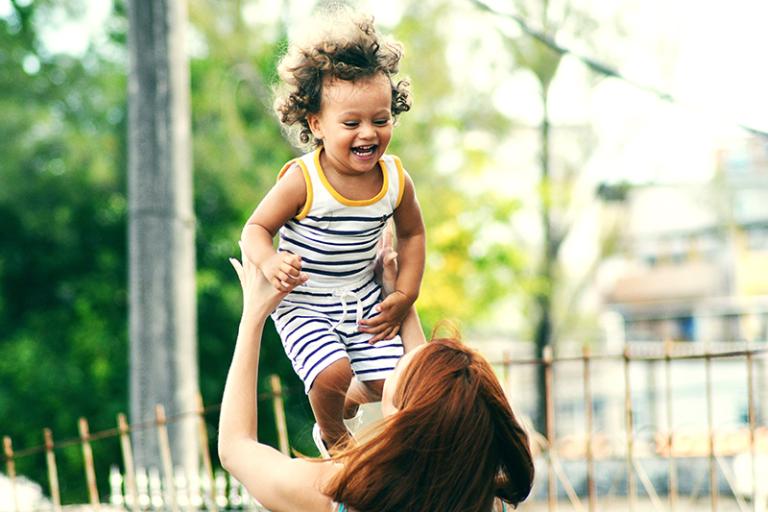News
DeLiema, colleagues awarded grant to explore parent-child discussions during outdoor play

The COVID-19 pandemic has led young children and their parents to spend more time together engaged in unstructured play, including in outdoor settings.
“Decades of research documents the value of these experiences along a number of dimensions, and yet much less research focuses on the texture of parent-child conversations in these settings, in particular moment-by-moment, discourse analyses that can richly inform parenting practices around children’s autonomous inquiry, healthy risk-taking, and productive failure,” says David DeLiema, assistant professor in the Department of Educational Psychology’s psychological foundations of education program.

DeLiema and colleagues were recently awarded a Sustainable Development Goal (SDG) Rapid Response Grant through the Global Programs and Strategy Alliance (GPS Alliance) to study “Parent-child Discourse in Outdoor Inquiry: Understanding Autonomy, Risk, and Failure during Learning.” The project is a partnership between Executive Director Anna Sharrat at the Minnesota-based Free Forest School and faculty staff and students across the University, including: Shirley G. Moore Lab School Director Sheila Williams Ridge; DeLiema and doctoral student Ashley Hufnagle from the Department of Educational Psychology; Professor Stephanie Carlson from the Institute for Child Development; and doctoral student Justin Baker from the Human Factors and Ergonomics department.
The first part of the study surveyed families across the country to gather initial data on how families with children aged two to eight were playing outside during the pandemic. The SDG grant will support ongoing data collection on phase two of the project, in which families are invited to record naturalistic, 20-30 min videos of their own adult-child unstructured play. Parents then follow up with the research team over zoom to reflect on the video recordings, focusing in particular on what parents consider moments of risk-taking, failure, and playfulness in nature.
According to DeLiema, the researchers will document how parents and children navigate impasses, risk-taking, autonomy, and problem-solving, with the goal of understanding their practical, naturalistic approaches. He hopes the findings of the study will throw light on parents’ perspectives on outdoor play, how parents and children improvisationally respond to an ever-changing natural world, nuance research constructs long studied in developmental and educational psychology, and generate new research questions about nature-based learning.